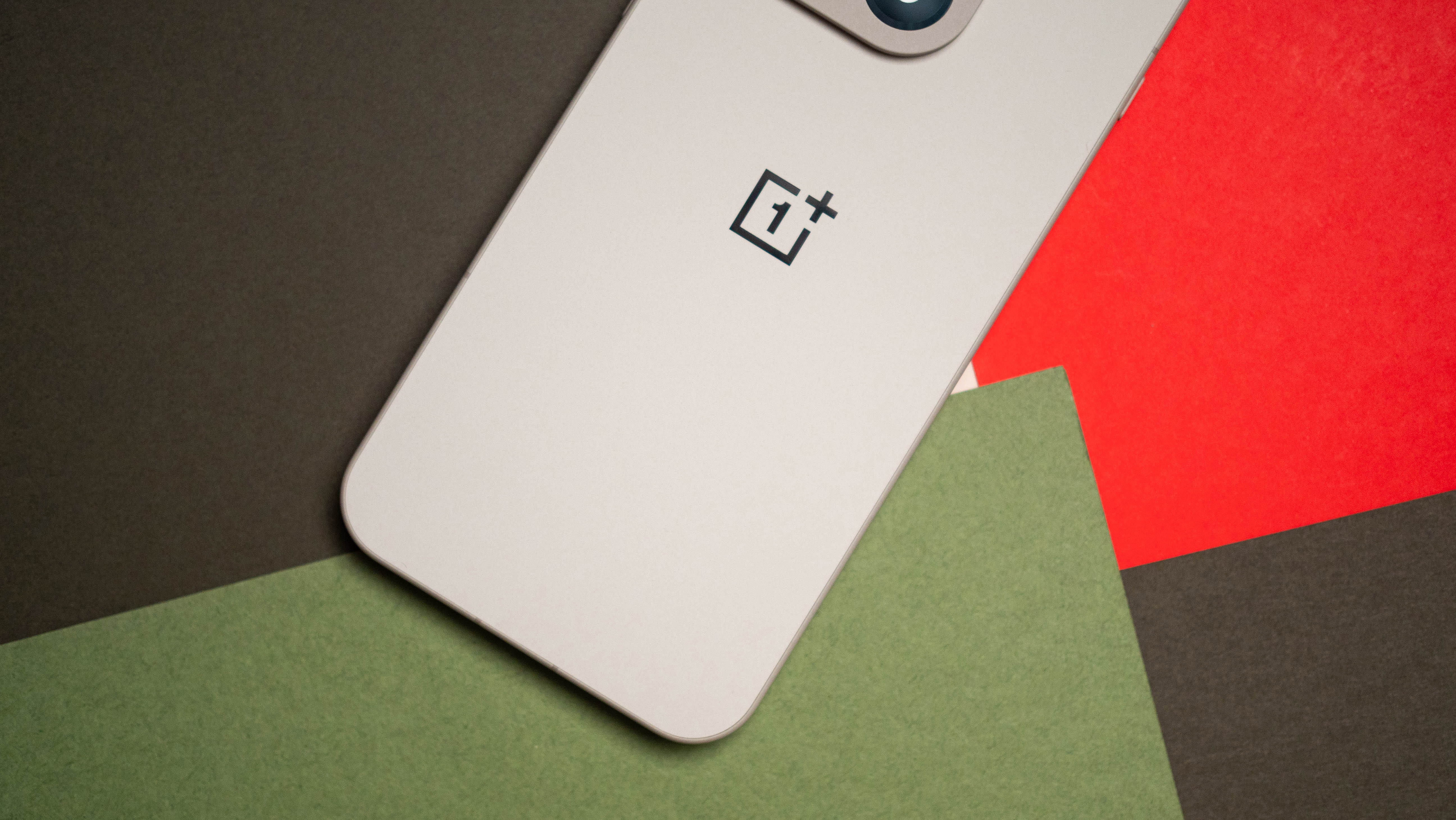Samsung Galaxy Z Flip 7 vs. Galaxy Z Flip 5: Accumulating advancements
If you're still rocking the Galaxy Z Flip 5, the Galaxy Z Flip 7 might offer enough reasons to upgrade.
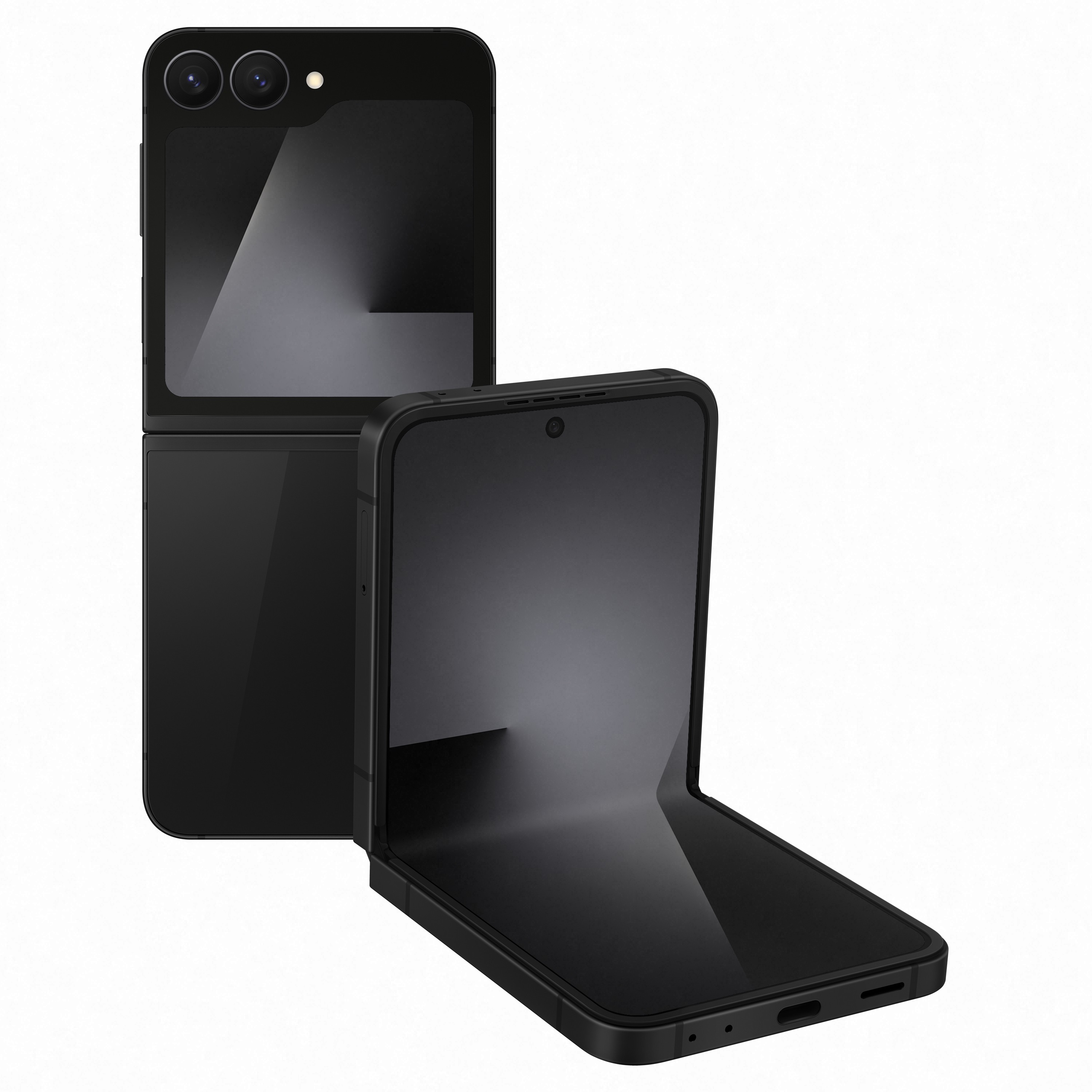
Big and beautiful displays
While there may be a lot of similarities between the Galaxy Z Flip 7 and older models, the screens are the differentiator. You get a massive 4.1-inch cover screen, a 6.9-inch main screen, and a new Flex Window software experience.
Pros
- 4.1-inch Flex Window with new software tricks
- Increased battery capacity with longer life
- Durable with IP48 certification and Gorilla Glass coverings
- Ships with One UI 8 and new Galaxy AI features
Cons
- Unchanged camera hardware
- Slow charging speeds
- Exynos 2500 could be a downgrade
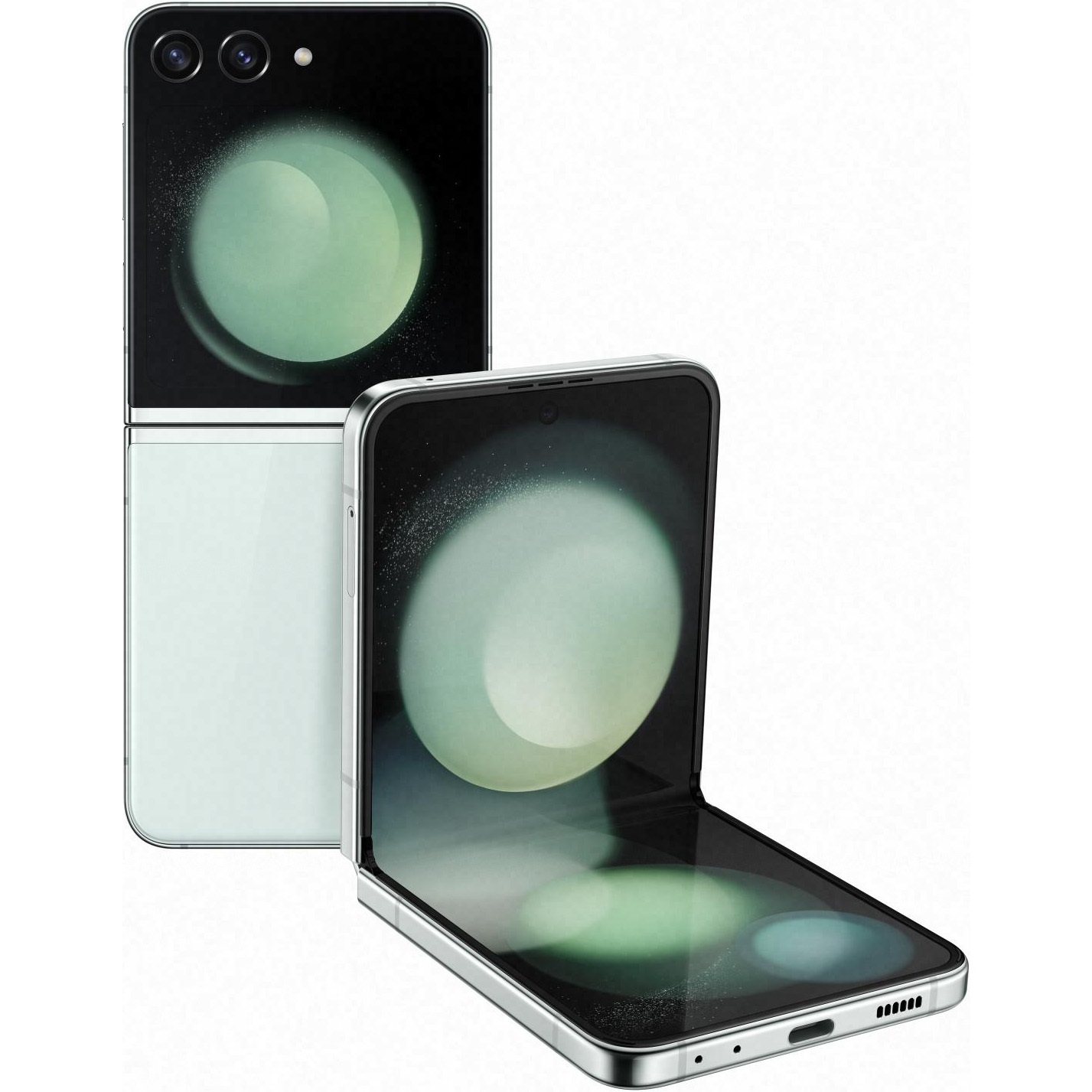
Blast from the past
The Samsung Galaxy Z Flip 5 debuted the larger outer screen, albeit with limited functionality. The display and performance specs still hold up even today, and the phone will be getting the One UI 7 update globally soon. Battery life isn't great though and the lack of any dust proofing doesn't hold up well in 2025.
Pros
- Large cover screen
- Snapdragon 8 Gen 2 performs like a champ
- Water resistance
Cons
- Lacks dust resistance
- Only 25W wired charging
- Battery life could be better
The Samsung Galaxy Z Flip 7 sports a new-look design highlighted by a larger cover screen, but is it enough to satisfy longtime clamshell foldable fans? On paper, this is a good thing, as we are finally getting the edge-to-edge outer display we've all been wanting, among other upgrades. However, there are still many similarities between the Galaxy Z Flip 7 and older models.
The Galaxy Z Flip 7 might offer enough new features to make you want to trade in your Galaxy Z Flip 5, but the question is, should you do it? Although the Samsung Galaxy Z Flip 7 will immediately become one of the best foldable phones, it's not a slam-dunk upgrade for everyone. Let's review how the new model compares to its two-year-old counterpart.
For more news and information on Samsung’s latest foldables, check out our Ultimate Guide.
Samsung Galaxy Z Flip 7 vs. Galaxy Z Flip 5: Design and display
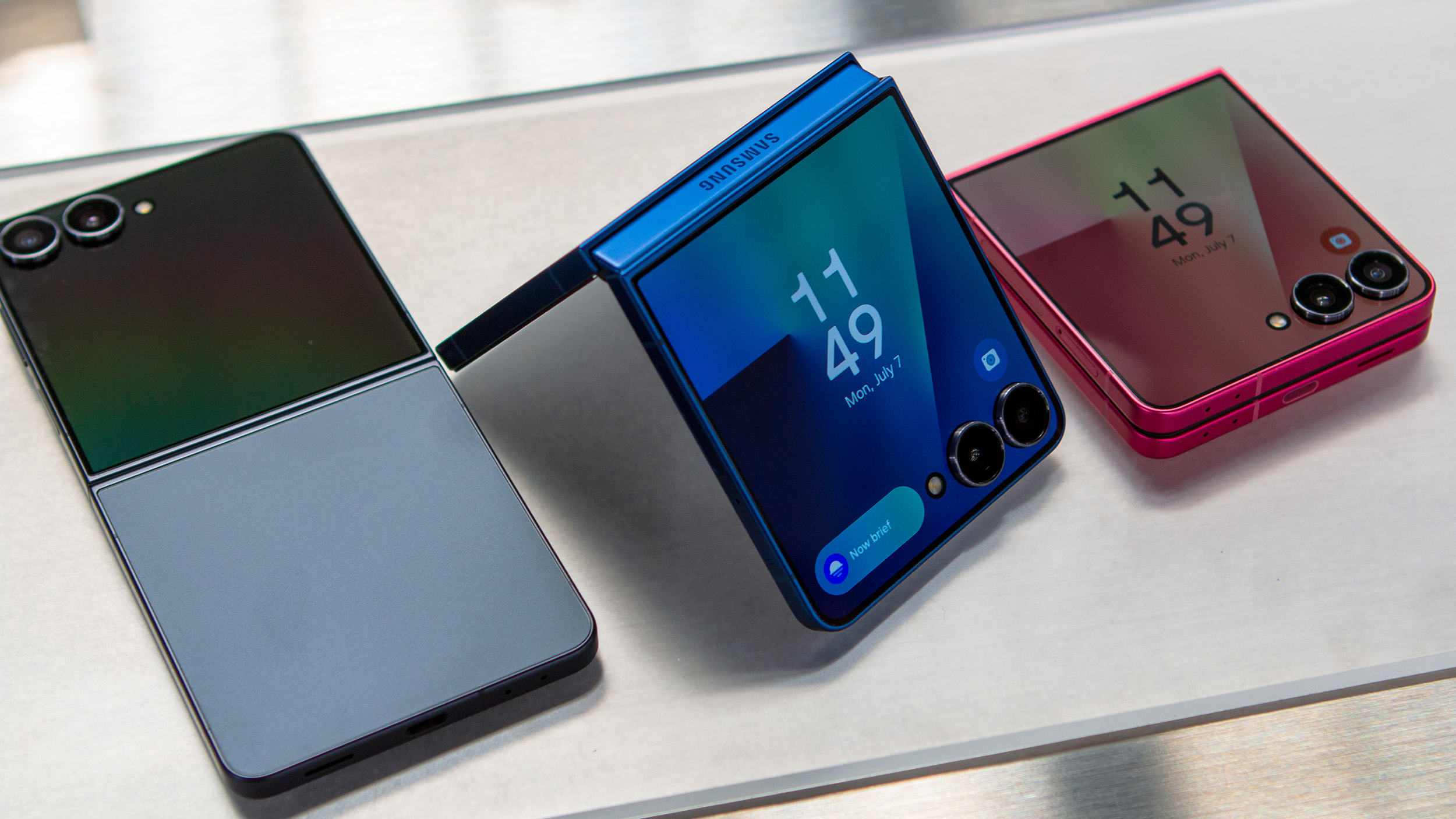
The Galaxy Z Flip 7 marks the first time Samsung added a larger, edge-to-edge cover display — the kind that can compete with Motorola's Razr Plus and Ultra models. It sports a 4.1-inch Super AMOLED panel that can now swap between 60 and 120Hz refresh rates. This isn't an LTPO screen, so it can't fluctuate quite like the inner display, but it's still a big upgrade.
Unfortunately, it seems like Samsung is still limiting the functionality to just widgets rather than full-fledged apps. The latter is possible on the Galaxy Z Flip 5 and 6, but not without jumping through hoops. While the company is expanding the capabilities of the Flex Window with the new Galaxy Z Flip 7, it's still not an unrestricted app experience.
The Galaxy Z Flip 7 keeps the boxy, rectangular appearance of the last generation of foldables. The corners are less rounded than the Galaxy Z Flip 5, and the sides are flatter and sharper. Thanks to the slight chamfer on the edges, the Galaxy Z Flip 7 shouldn't be uncomfortable to hold compared to the older model.
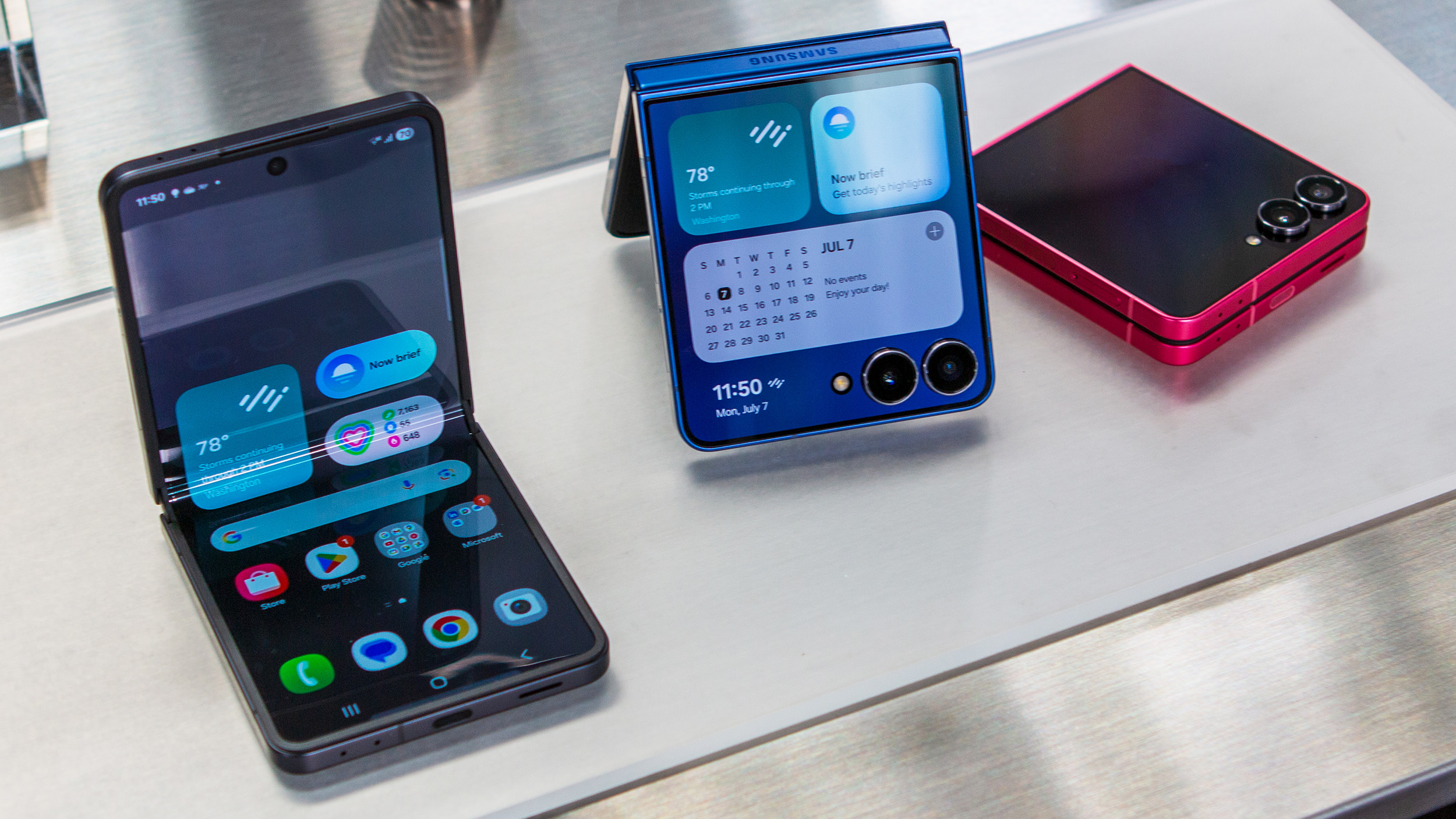
In fact, the Galaxy Z Flip 7 will probably fit nicer in your hand or pocket thanks to its slimmer chassis. Samsung made the entire package thinner when shut, as it now measures just 13.7mm closed. The Samsung Galaxy Z Flip 5 measures 15.1mm when folded for reference. At 187 grams, the Galaxy Z Flip 5 is actually a tad bit lighter than the 188-gram Galaxy Z Flip 7.
Get the latest news from Android Central, your trusted companion in the world of Android
Crucially, the Galaxy Z Flip 7 is more durable, as it's rated for IP48 certification against dust and water ingress. The older Galaxy Z Flip 5 is IPX8, so it can withstand water but not dust. This is a problem since dust and debris can creep their way into the hinge of a foldable phone, breaking the display.
Dust resistance is a big reason to pick the Galaxy Z Flip 7, and the Armor Aluminum side rails, Gorilla Glass Victus 2 coverings, and redesigned FlexHinge are added bonuses in the durability department.
Samsung Galaxy Z Flip 7 vs. Galaxy Z Flip 5: Hardware and specs
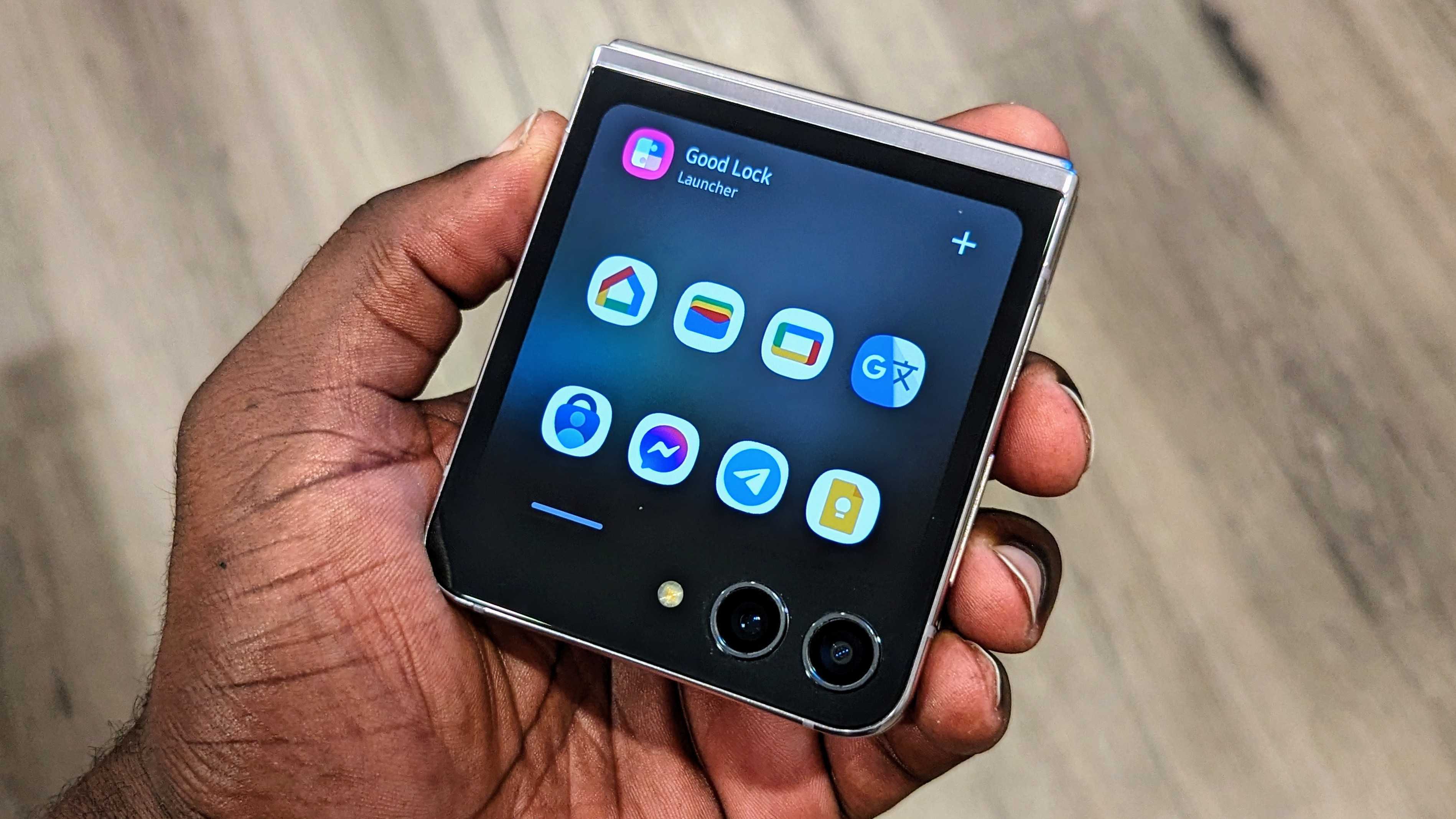
The Samsung Galaxy Z Flip 7 is launching with One UI 8, based on Android 16. The new operating system, paired with a Samsung Exynos 2500 chip, could make for a refreshed and efficient experience. While we don't quite know how the Exynos 2500 will compare to the flagship Qualcomm Snapdragon 8 Elite mobile platform, we can expect Samsung's counter to be less performant.
Samsung says the Galaxy Z Flip 7 is more powerful than its predecessor thanks to the Exynos 2500, which is a 3nm chip. The phone also has 12GB RAM as standard, which will make the latest software feel more responsive and snappy compared to the Galaxy Z Flip 5. The latter's Snapdragon 8 Gen 2 is still a solid chip for powering through your social and productivity apps, but heavier games should fare better on the Flip 7's newer processor.
For those who trust Snapdragon more than Exynos, though, the Galaxy Z Flip 5 might be more appealing.
Category | Samsung Galaxy Z Flip 7 | Samsung Galaxy Z Flip 5 |
|---|---|---|
Display | 6.9-inch, 2520 x 1080, FHD+, Dynamic AMOLED 2X, LTPO (1-120Hz) | 6.7-inch Dynamic AMOLED 2x, 120Hz, 2640 x 1080 resolution, 1750 nits |
Cover display | 4.1-inch Super AMOLED, 60/120Hz, 948 x 1048 | 3.4-inch AMOLED, 60Hz, 720 x 748, 306 ppi |
Operating System | Android 16 (One UI 8) | Android 13 (One UI 5.1), upgradable to Android 15 |
Chipset | Samsung Exynos 2500 | Snapdragon 8 Gen 2 for Galaxy |
RAM | 12GB | 8GB |
Storage | 256GB, 512GB | 256GB, 512GB |
Rear Camera 1 | 50MP, f/1.8 wide | 12MP wide, f/1.8, Dual Pixel AF, OIS, 85˚ |
Rear Camera 2 | 12MP, f/2.2 ultrawide | 12MP ultrawide, f/2.2, 123˚ |
Front-facing Camera | 10MP, f/2.2 wide | 10MP wide, f2.2, 85˚ |
Battery | 4,300mAh | 3,700mAh |
Charging | 25W wired charging, 15W wireless charging, 4.5W reverse wireless charging | 25W wired charging, 15W fast wireless charging 2.0, 4.5W reverse wireless charging |
Weight | 188g | 187g |
Dimensions (folded) | 85.5 x 75.2 x 13.7 mm | 85.1 x 71.9 x 15.1 mm |
Dimensions (unfolded) | 166.7 x 75.2 x 6.2 mm | 165.1 x 71.9 x 6.9 mm |
Protection | IP48, Armor Aluminum frame, Gorilla Glass Victus 2 (cover display, rear panel), PET screen protector (inner display) | IPX8, Armor Aluminum frame, Gorilla Glass Victus 2 (cover display, rear panel), PET screen protector (inner display) |
In terms of battery life, the Galaxy Z Flip 7 should crush the older Galaxy Z Flip 5. The former has a 4,300mAh capacity, while the latter has a 3,700mAh capacity. Plus, the Exynos chip should actually give the Galaxy Z Flip 7 an advantage in efficiency.
For some reason, the Galaxy Z Flip 7 is still stuck with just 25W wired charging speeds — the same as the Galaxy Z Flip 5. People hoping for faster power-up times will be disappointed again by this year's Galaxy Z Flip model.
Samsung Galaxy Z Flip 7 vs. Galaxy Z Flip 5: Cameras
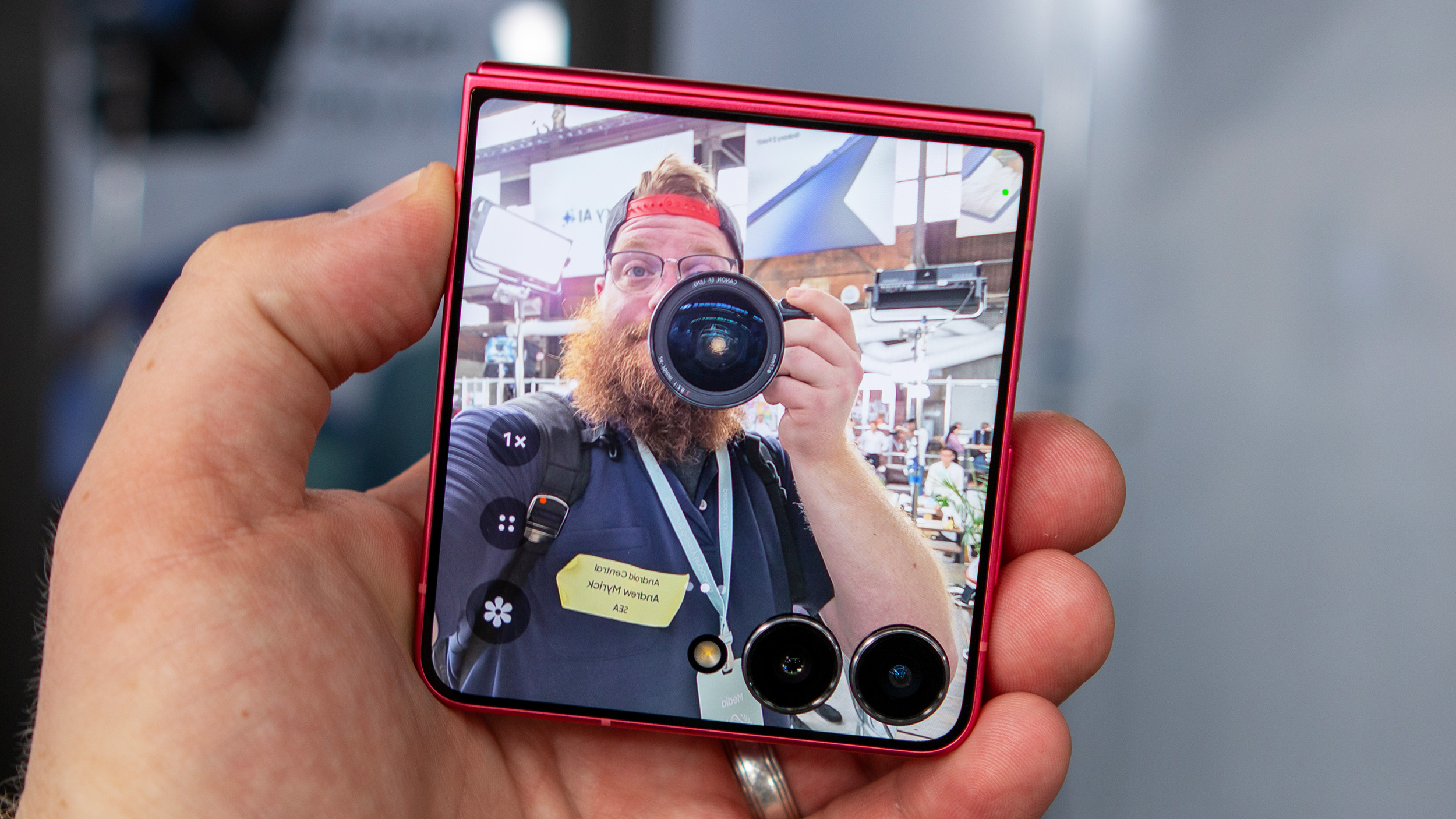
Cameras are an area where the Galaxy Z Flip 7 will best the Galaxy Z Flip 5. The latter has two 12MP sensors on the outside, which are serviceable but not great in terms of capturing very good details. The Galaxy Z Flip 7 has a 50MP main camera like the Flip 6, with the sensor being unchanged from last year. The secondary ultrawide lens is still a 12MP f/2.2 lens.
Samsung has maintained a 10MP camera in the folding screen for the past few generations, and it will continue on the Flip 7. Aside from the primary shooter, the cameras are consistent between the Galaxy Z Flip 7 and Galaxy Z Flip 5.
Samsung Galaxy Z Flip 7 vs. Galaxy Z Flip 5: Which one should you buy?
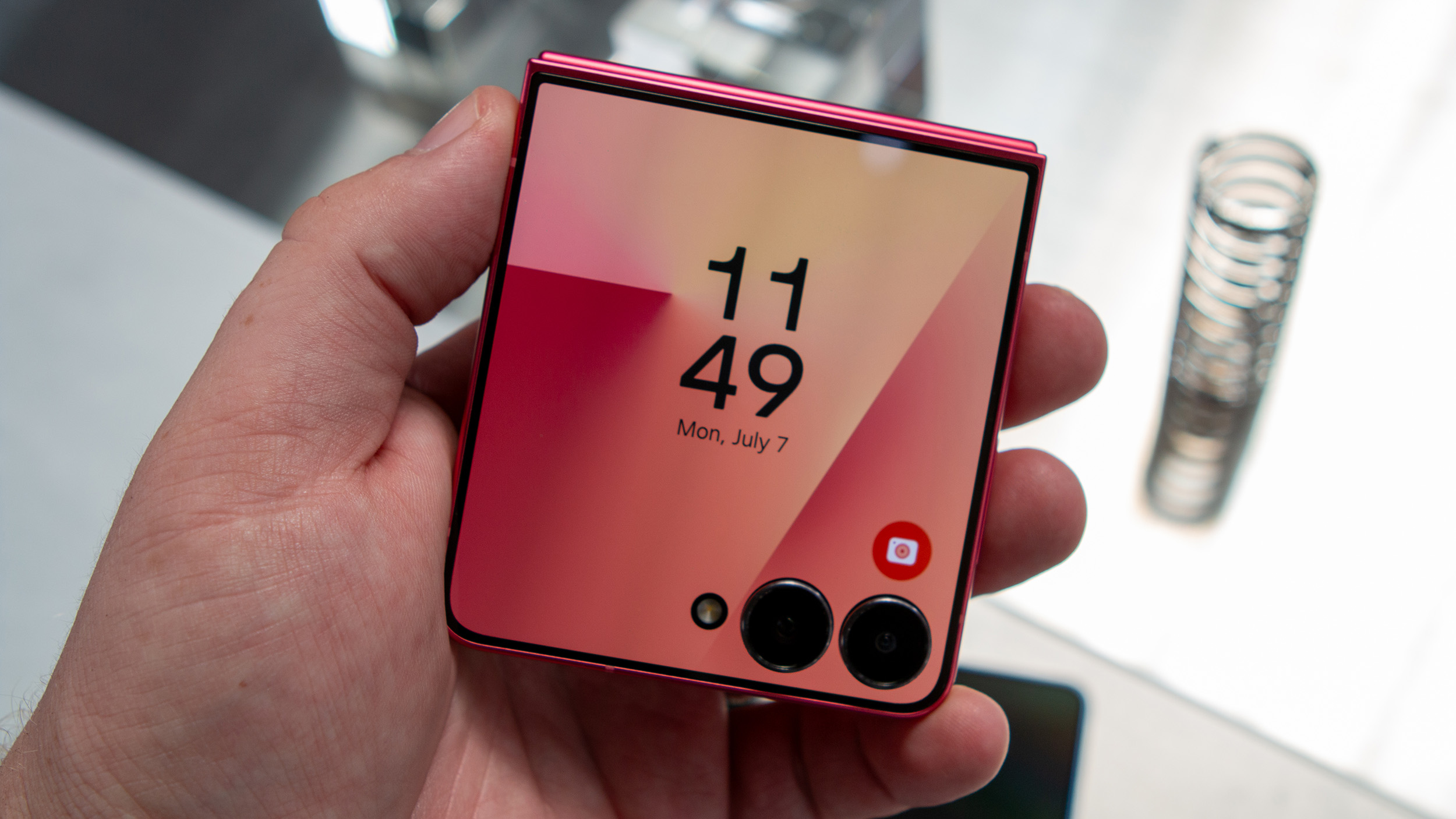
While it doesn't make sense to buy the Galaxy Z Flip 5 new in 2025, keeping the one you have is a different story. There are a surprising number of similarities between the two-year-old model and the brand-new one. Slow wireless charging speeds, a limited cover screen, and unchanged secondary and front-facing cameras are some of the big ones.
Still, there are a lot of crucial upgrades between the Galaxy Z Flip 7 and the Galaxy Z Flip 5. Dust resistance, improved durability, and a slimmer chassis are major changes. Bigger screens and a 50MP main camera sensor are nice to have as well. With all that in mind, it might be worth trying to get one more year out of the Galaxy Z Flip 5.
If you're buying new or used, the Galaxy Z Flip 7 or even the Galaxy Z Flip 6 is a better option than the aging Galaxy Z Flip 5. The latter's weak durability makes it hard to recommend when stronger options are available.
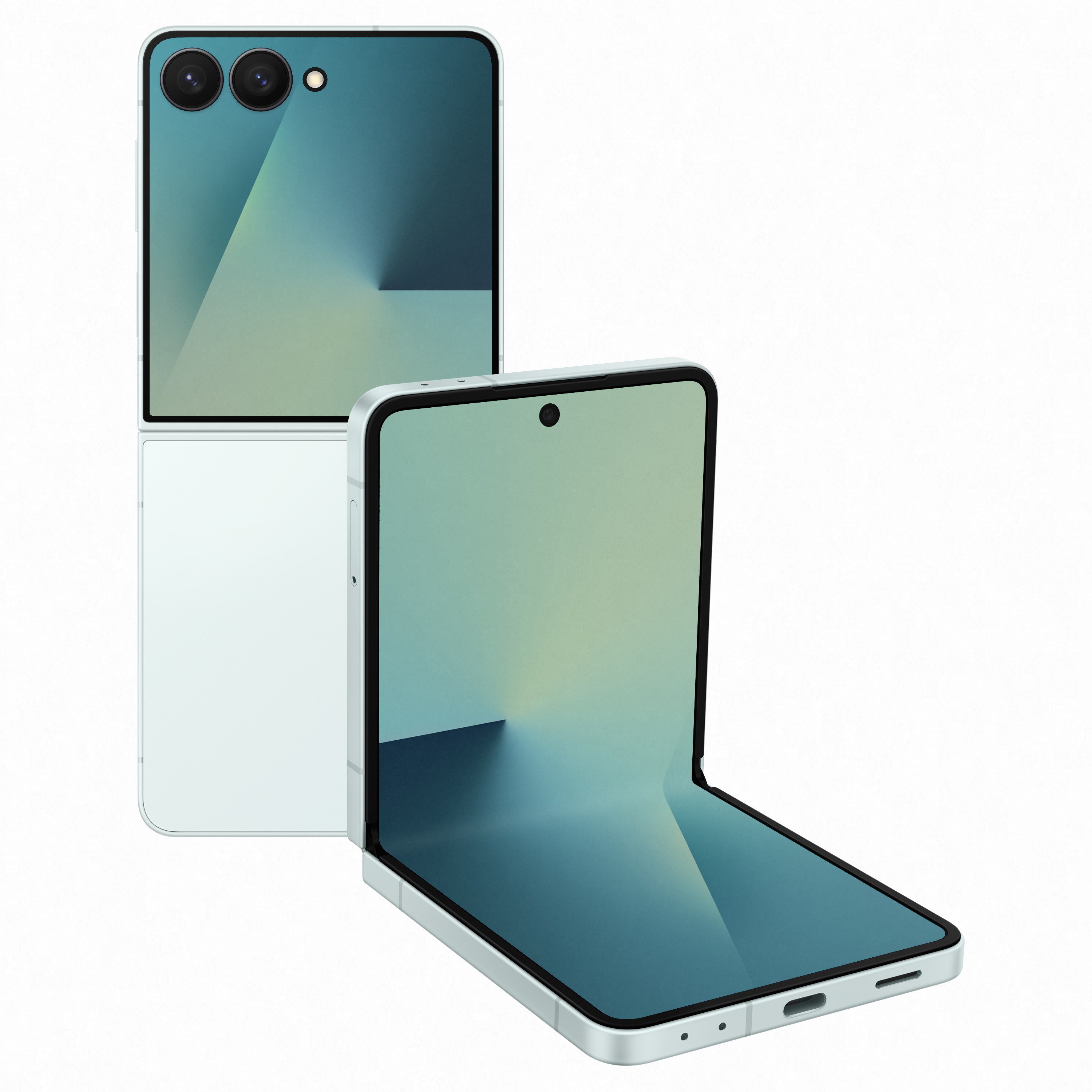
The best Galaxy Z Flip
The tougher build, longer battery life, and bigger displays are probably enough to pick the Samsung Galaxy Z Flip 7 over the older Galaxy Z Flip 5. If you're buying new, it may be the only Samsung model it makes sense to purchase.

Out of stock, out of mind
The Samsung Galaxy Z Flip 5 is not the best investment right now as far as foldables go. It's nearly two years old, there's no real price drop for it, and its shortcomings like the mediocre battery life doesn't hold up well in 2025.

Roydon has been writing about personal technology for 10+ years, and has covered everything from news, reviews, features, to on-ground coverage of big trade shows like CES. He's passionate about mobile technology and computing, dabbles with photography, and is still struggling to work his way through his Steam and PS4 game library.
You must confirm your public display name before commenting
Please logout and then login again, you will then be prompted to enter your display name.
